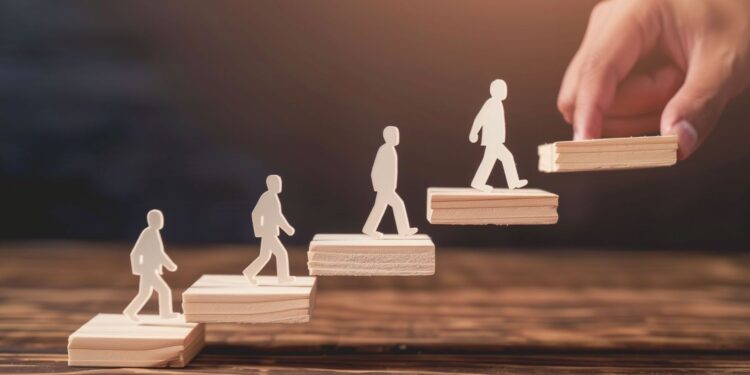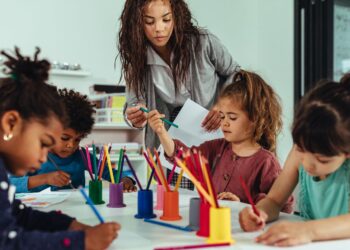As the pandemic swept across the globe, it disrupted nearly every aspect of daily life. For many, it triggered a profound shift in how they live and think. Mental strain, fear of illness, job loss, and isolation pushed people to adapt in diverse ways.
The world shifted to survival mode, and people who once focused on building skills, advancing in their careers, or working toward self-improvement suddenly faced uncertainty. The meaning of personal development began to evolve. Goals that once seemed pressing no longer held the same weight, while overlooked pursuits gained new value. (1)
But what are the nuances of the changes in people’s attitudes toward personal development? Read on.
Exploring Growth Through Digital Learning
Online learning platforms saw a surge in users during the pandemic. As people searched for direction, digital resources helped fill the gap. Many enrolled in short-term training and development programs. Others joined career-focused programs that aligned with new interests, such as the access to HE Diplomas in Psychology. (2)
Learning and development activities became easier to access. People tried out courses in product management, soft skills, or even creative arts, topics that had nothing to do with their pre-pandemic paths. Many also took advantage of free personal development webinars, which offered flexible opportunities to reflect, learn, and connect with new ideas without pressure or cost.
These shifts opened doors for skill development without needing to leave home. The freedom to explore without a rigid structure helped redefine what it meant to keep growing.
Shifting Priorities and Everyday Habits
Before COVID-19, personal development plans often revolved around measurable results. People focused on promotions, certifications, and boosting productivity. But once daily routines collapsed, so did traditional benchmarks.
Research from The Washington Post illustrates how these shifts manifested, revealing a widespread move away from relentless busyness towards a greater emphasis on personal balance. Many began to favor cooking meals at home, establishing clearer boundaries between work and personal life, and consciously carving out time for exercise or rest. (3)
These evolving patterns weren’t typically part of pre-pandemic action planning, yet they became crucial in people’s lives. The pause made people rethink what they were working toward. Some dropped their original action plan entirely and started building something that aligned better with personal needs.

Focusing on Mental Health and Emotional Well-Being
Lockdowns made mental health impossible to ignore. Loneliness, anxiety, and burnout affected nearly everyone in some form, regardless of their background or profession.
Research indicated that by mid-March 2020, confirmed COVID‑19 cases outside China had already surpassed 88,000, highlighting just how quickly the crisis spread and how much the fear and uncertainty grew. As a result, emotional wellness began showing up in conversations about personal development more often than before. (4)
Instead of squeezing meditation or therapy into an already packed day, people placed them at the center of their daily routines. Mental check-ins became just as crucial as to-do lists. Feedback and evaluation weren’t just for work anymore: they were used personally, to reflect on how someone was feeling or coping. (5)
This period helped normalize self-care as a foundation for any sustainable performance improvement. Taking time to recharge emotionally became part of, not separate from, personal development action plans.
Reflecting and Reassessing Personal Goals
With canceled events and more time indoors, self-reflection grew. People reassessed their goals and objectives, not just for work, but for life. Some chose to leave careers that no longer made sense. Others shifted to side projects or creative outlets.
This marked a deeper change in how people evaluate progress. Emotional intelligence became part of that process, especially as they looked inward and questioned what brought them genuine satisfaction.
Personal growth became less about external milestones and more about internal clarity. It was no longer just about reaching the next step, but more about understanding why that step mattered in the first place.
Adopting a New Definition of Success
Motivational message displayed on a digital tablet
The pressure to constantly chase career goals started to wear thin. For many, success shifted from title and income to balance and stability, and even career development strategies began to reflect that.
Some professionals stopped following rigid leadership development plans and instead focused on well-being and work-life balance. The goal was no longer about climbing the ladder. It was about finding something meaningful to pursue each day, even if it looked different from what was expected.

Many began to measure success through fulfillment, peace of mind, and alignment with personal values instead of traditional benchmarks like promotions or material rewards. Insights from Psychology Today suggest that this change was tied to a deeper need to define success based on individual experience and emotional well-being. (6)
This mental reset caused a rethinking of traditional training plans, emphasizing speed and efficiency over mental clarity.
The pandemic interrupted routines and delayed progress, but it also prompted a shift in how people approach personal development. Many turned inward, reassessing goals, values, and priorities. Traditional success markers gave way to individual well-being, flexible learning, and emotional clarity.
References
- “How has the pandemic changed our behavior?” Source: https://www.medicalnewstoday.com/articles/how-has-the-pandemic-changed-our-behavior
- “Online learning boomed during the pandemic—but what happens when students return to classrooms?” Source: https://www.cnbc.com/2021/03/26/online-learning-boomed-during-the-pandemic-but-soon-students-return-to-school.html
- “Gyms, pets and takeout: How the pandemic has shifted daily life,” Source: https://www.washingtonpost.com/wellness/interactive/2023/pandemic-changes-daily-life/
- “COVID-19: Cases & Recoveries,” Source: https://www.statista.com/chart/21086/estimated-number-of-covid-19-cases-and-recoveries/?utm_source=chatgpt.com
- “The Skill Of Self-Care: A Leadership Competency For The Modern Era,” Source: https://www.forbes.com/sites/hvmacarthur/2024/12/30/the-skill-of-self-care-a-leadership-competency-for-the-modern-era/
- “What Is Success?,” Source: https://www.psychologytoday.com/us/blog/keep-your-fork/202201/what-is-success











